On April 23, the China Building Materials Federation, Conch Group, and Huawei jointly hosted the Cement AI Large Model Achievement Release Conference in Wuhu, Anhui Province. As the first cloud-edge collaborative AI model in the building materials industry, this release marks a milestone in the sector’s digital and intelligent transformation. During the event, the White Paper on the Development of AI Large Models in the Cement Industry (2025 Edition) was also officially unveiled.
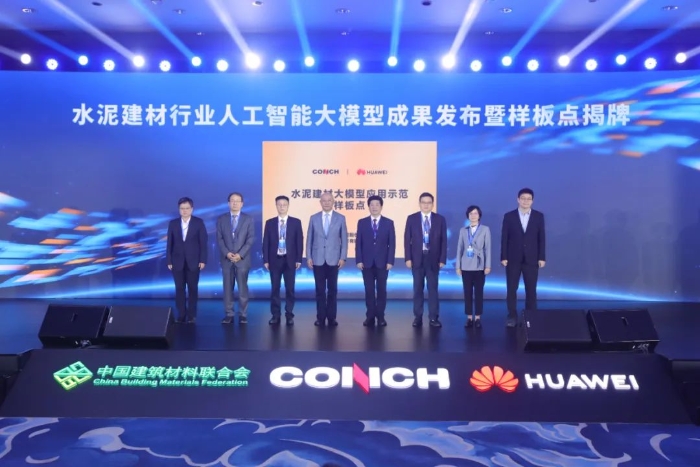
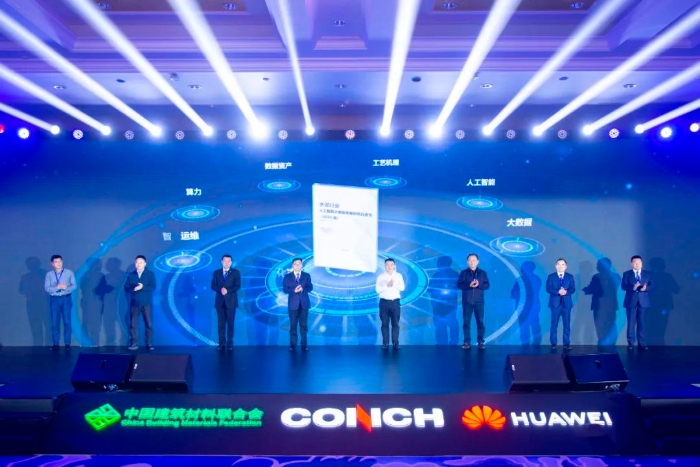
The event was attended by Yan Xiaofeng, Secretary of the Party Committee and President of the China Building Materials Federation; Xu Zhi, Deputy Secretary of the Wuhu Municipal Party Committee and Mayor; Chen Longsheng, Member of the Party Leadership Group and Deputy Director-General of the Anhui Provincial Department of Science and Technology; Yang Jun, Secretary of the Party Committee and Chairman of Conch Group; Zhang Dongzhuang, Standing Committee Member of the Party Committee and Vice President of the China Building Materials Federation; Zou Zhilei, Senior Vice President of Huawei; and Wang Fazhou, Vice President of Wuhan University of Technology. Over 340 industry experts, scholars, business representatives, and media professionals also participated in the release event.
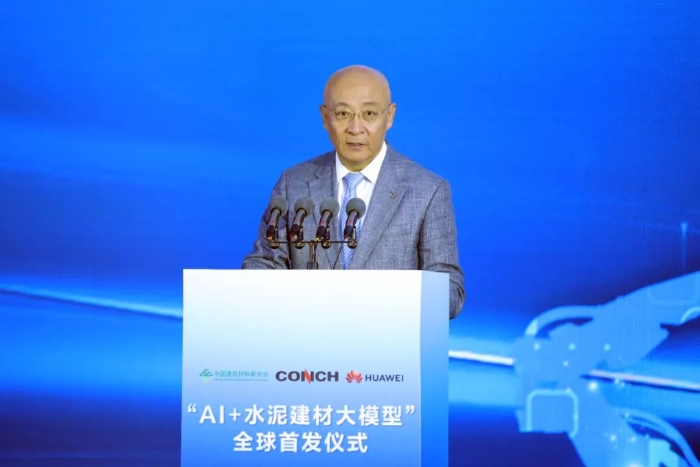
In his remarks, Yan Xiaofeng emphasized that guided by national strategic priorities, the China Building Materials Federation is committed to leading the development of the building materials industry and advancing the deep integration of artificial intelligence and the sector. As early as 2020, the Federation urged the entire industry to embrace the opportunities brought by emerging technologies and actively explore the application of AI in various scenarios. It has since consistently advocated for “AI + building materials” as a strategic opportunity at major industry events, aiming to build a modernized industry system. As a leading enterprise in the cement industry, Conch Group has joined forces with Huawei to pioneer cutting-edge solutions, pushing technical boundaries and embracing bold experimentation. The AI large model released at this event represents a breakthrough from laboratory algorithms to real-time production deployment, marking a key milestone in applying AI large models within cement plants. This achievement vividly demonstrates the implementation of AI in traditional industries and offers a new path forward for digital transformation in the building materials sector.
He stressed that today’s launch marks a new starting point. Enterprises in the building materials industry must adhere to the philosophy of “technology for good,” follow the principle of “practical application,” and promote “open and shared” collaboration to jointly write a new chapter in the intelligent era.
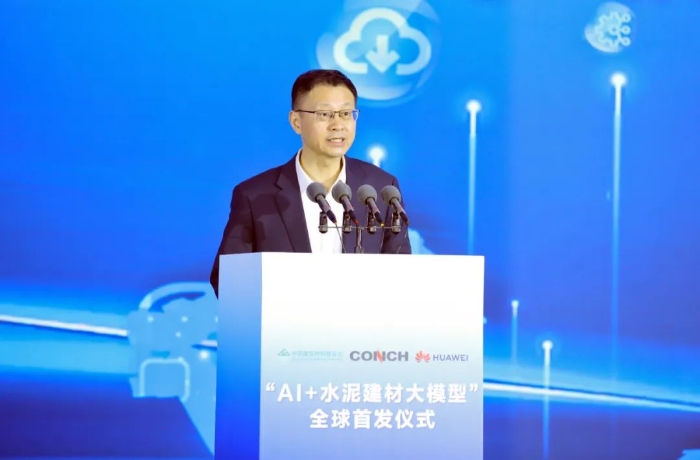
In his speech, Xu Zhi, on behalf of the Wuhu Municipal Party Committee and Government, highly praised the achievement delivered through this cross-sector collaboration. He stated that the city will use the event as a springboard to deepen the implementation of its AI innovation and digital transformation initiatives, and will explore the development of foundational data systems to create a first-class industrial ecosystem and comprehensive policy support for the integration of the digital and real economies.
Yang Jun noted that in recent years, Conch Group has identified AI large model technology as a key driver of its digital transformation strategy. By cooperating with technology leaders in a model of “industry needs + technological empowerment + ecosystem collaboration,” the company has filled a gap in AI large model applications within the cement industry. Looking ahead, Conch hopes to deepen cooperation with more enterprises and research institutions, enabling continued iteration and real-world application of large models, co-building an “AI + building materials” ecosystem. He reaffirmed Conch’s commitment to innovation and shared development, and to exploring new application scenarios that contribute to the industry’s advancement toward intelligent manufacturing.
Zou Zhilei introduced the collaborative development between Conch and Huawei, positioning the project as a benchmark for AI large models in the cement industry. He emphasized the future vision of building a unified architecture, standard, and data format for the sector, using AI to codify knowledge and assist other cement enterprises in achieving intelligent and inclusive transformation.
During the event, Professor Zhang Jie and Professor Li Xiangyang from the University of Science and Technology of China delivered academic lectures titled “Core Value Chains in the Era of Big Tech and Large Models” and “Network Collaboration and Optimization of Industrial Intelligent Agents,” respectively. Xu Yue, Assistant General Manager of Conch Cement and Head of the Digital Business Division, presented the achievements of the cement AI large model in a keynote speech titled “AI Empowers and Leads the Future.”
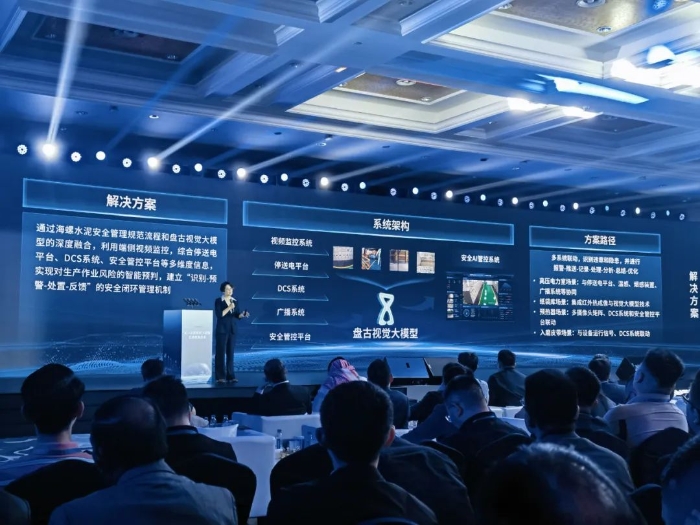
In April 2024, with the support of the China Building Materials Federation, Conch Group and Huawei officially launched the development of the AI large model. Leveraging Huawei Cloud’s Pangu large models for forecasting, visual analysis, and natural language processing, they created an integrated AI system that features centralized training, edge inference, cloud-edge collaboration, real-time learning, and continuous optimization. The model has now been implemented in over 40 real-world scenarios across five major categories: quality control, production optimization, equipment management, workplace safety, and intelligent Q&A.
The cement AI large model is not only a landmark achievement in Conch Group’s digital transformation journey, but also a starting point for cross-sector integration, collaborative innovation, and the development of new industrial paradigms. Currently, a number of enterprises in the building materials industry—led by Conch—are embracing the “AI + building materials” vision through active R&D and practical exploration. Guided by the China Building Materials Federation, AI and digital technologies are expected to play an increasingly critical role in the transformation and upgrading of traditional industries, accelerating the building materials sector’s shift toward higher-end, greener, and smarter development.
Edited by: Zhang Hanwen
Reviewed by: Li Yuemei, Shen Yulu




